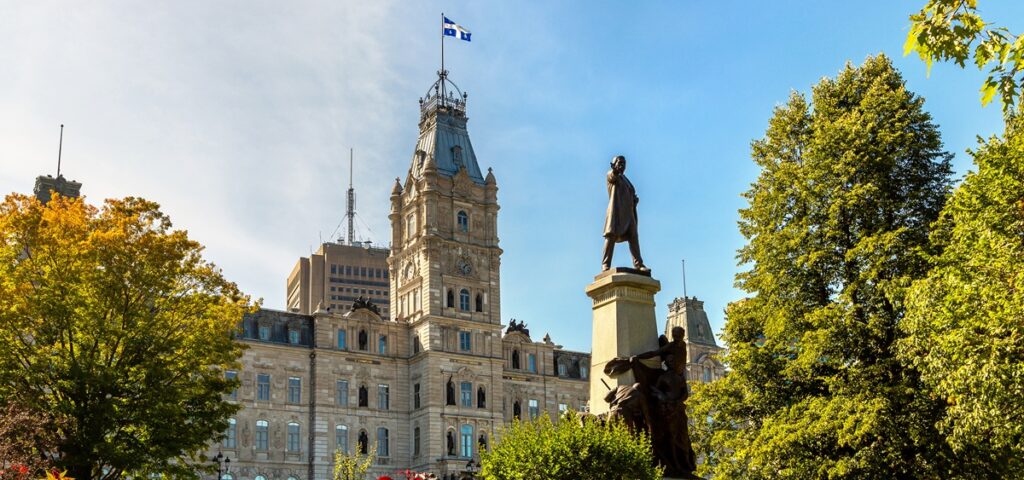On June 27, 2025, we mark the 50th anniversary of a major milestone in the history of human rights in Quebec. On this day in 1975, the National Assembly unanimously adopted the Charter of Human Rights and Freedoms. The Quebec Charter came into force a year later, on June 28, 1976.
Since then, it has protected people in Quebec against violations of their rights and freedoms. It’s a powerful tool that has helped advance the rights of many groups, including women, people with disabilities, ethnocultural minorities, and members of the LGBTQ+ community. Fifty years later, do you know your rights? What about how to make sure they’re respected?

The Quebec Charter of Human Rights and Freedoms (often called the Quebec Charter) protects your fundamental rights and freedoms, like your right to life, freedom, and personal security. It also guarantees your freedom of religion and freedom of expression, as well as your right to privacy, your dignity, and the protection of your reputation.
The Quebec Charter goes further by affirming your right to equality, or your right not to be discriminated against. Everyone in Quebec is equal and entitled to the same rights and freedoms. It’s against the law to limit someone’s rights and freedoms because of who they are or the group they belong to. In other words, the Quebec Charter prohibits discrimination.
For example, the Quebec Charter prohibits treating someone unfairly based on the following:
- ethnic or national origin,
- gender,
- sexual orientation,
- age,
- religion,
- political opinions,
- language,
- handicap.
It’s also not allowed to harass someone based on one of these characteristics. This type of behaviour is called discriminatory harassment.
And that’s not all: the Quebec Charter gives you many other rights and freedoms. You can learn more about it by checking out The Charter of Human Rights and Freedoms Made Easy, a simplified version of the Quebec Charter prepared by the Commission des droits de la personne et des droits de la jeunesse (CDPDJ or Quebec’s human rights commission).
Quebec Charter vs. Canadian Charter: What’s the difference?
In Quebec, two charters protect your rights: the Quebec Charter of Human Rights and Freedoms and the Canadian Charter of Rights and Freedoms (often called the Canadian Charter). Both charters protect similar rights and freedoms, but they apply in different situations.
The Quebec Charter is Quebec’s most important law. It applies to everyone in the province: the government, businesses, and individuals. If the government, a business or a person violates one of your rights under the Quebec Charter, they can be ordered to pay you compensation.
The Canadian Charter is part of Canada’s Constitution, which is the most important law in the country. It applies to federal, provincial, and territorial governments. The Canadian Charter doesn’t apply to private enterprises or individuals. You can only ask for compensation if it’s the government or a government agency that violates your rights or freedoms.
How to enforce your rights and freedoms
If you think you’ve been a victim of discrimination, harassment, or exploitation, you can file a complaint with the Commission des droits de la personne et des droits de la jeunesse (CDPDJ or Quebec’s human rights commission).
The CDPDJ is an independent organization that makes sure the Quebec Charter is respected by governments, businesses, and individuals. It processes complaints and can investigate and represent people who may have been victims of discrimination, harassment, or exploitation before the Human Rights Tribunal.
It’s the Human Rights Tribunal that decides whether your rights have been violated and whether you’re entitled to compensation.





